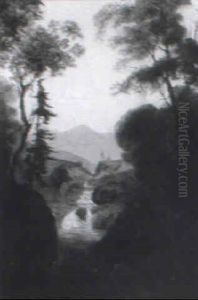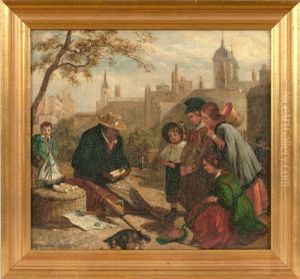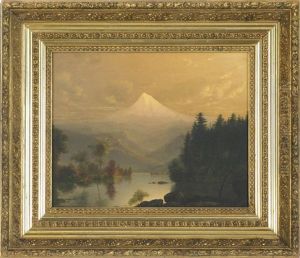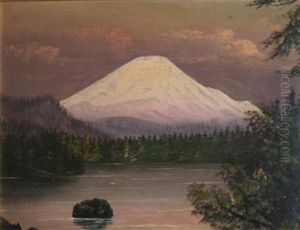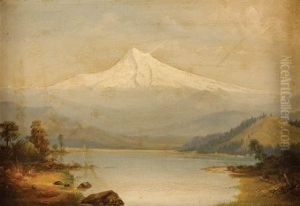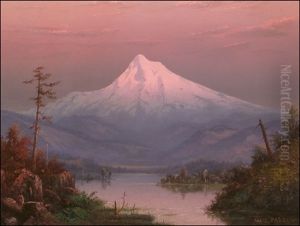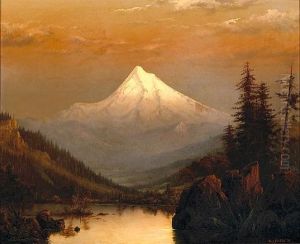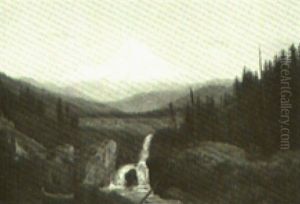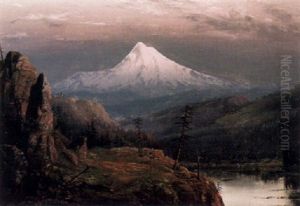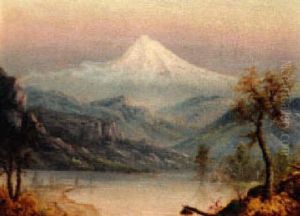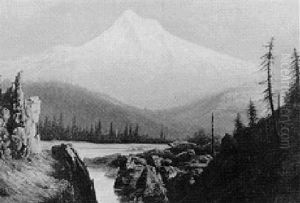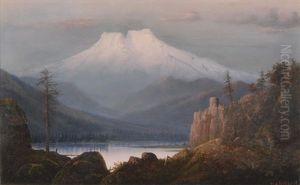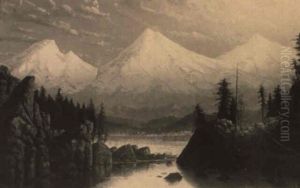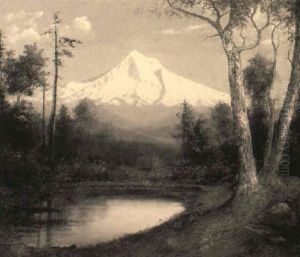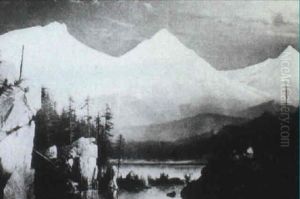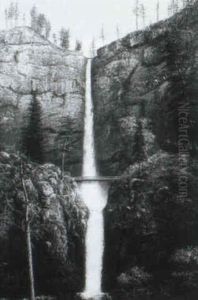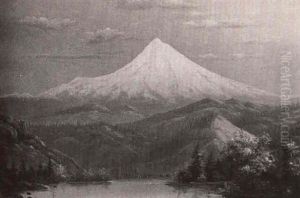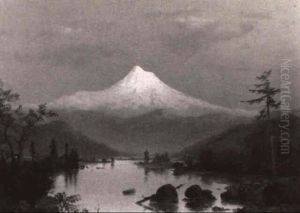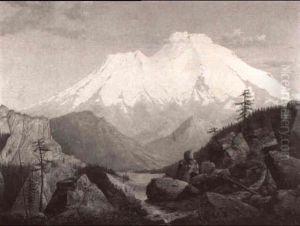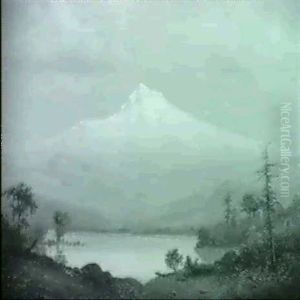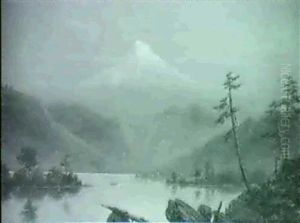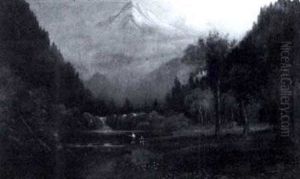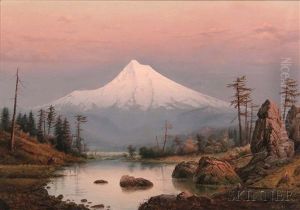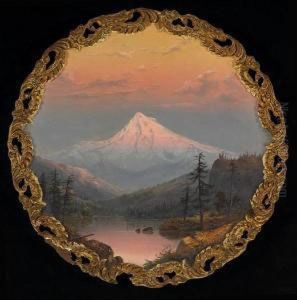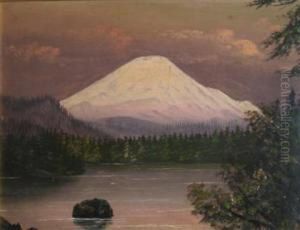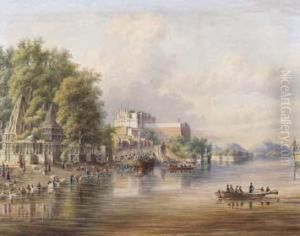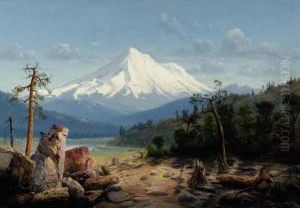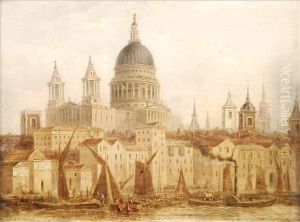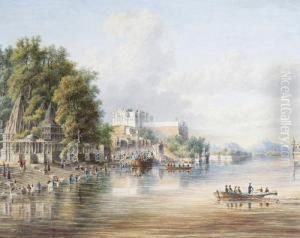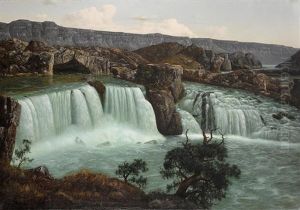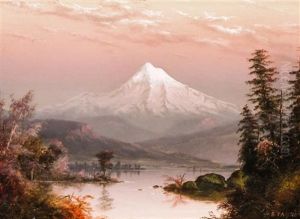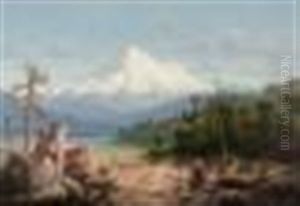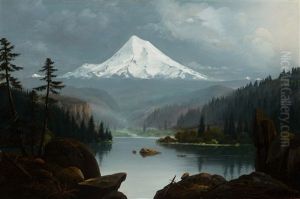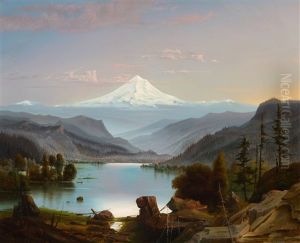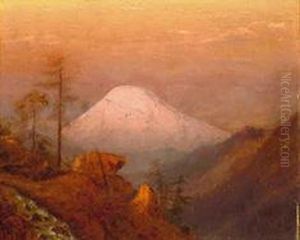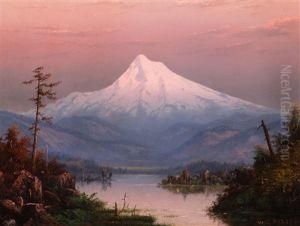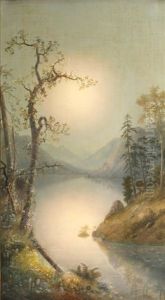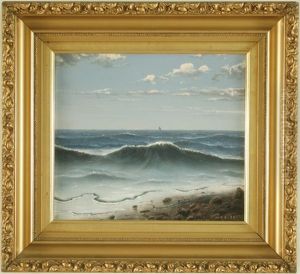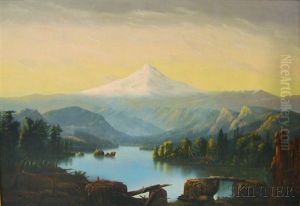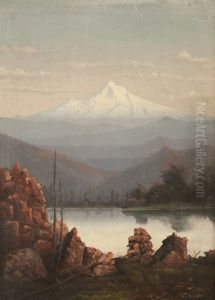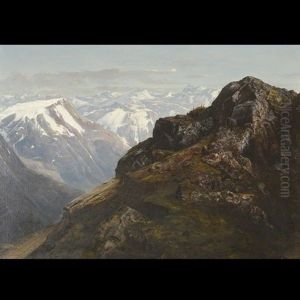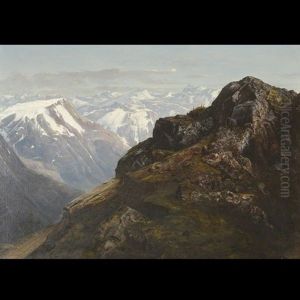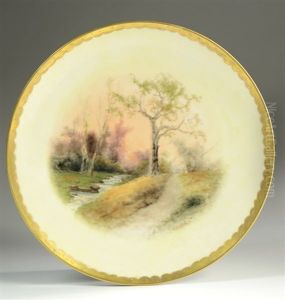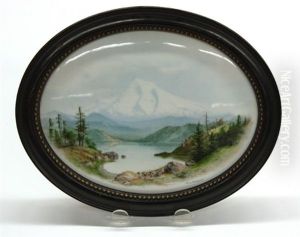William Samuel Parrott Paintings
William Samuel Parrott was an American painter known for his landscapes that often depicted the Pacific Northwest. Born on April 26, 1843, in the state of Missouri, Parrott developed a deep appreciation for nature and the outdoors at a young age, which would greatly influence his later work as an artist.
In the 1860s, Parrott moved to Oregon, which at the time was still relatively unsettled by non-indigenous people. The stunning vistas and unique light of the region inspired him, and he began to focus on painting landscapes. His works often captured the dramatic topography and grandeur of Oregon's mountains, rivers, and forests, and he became known for his ability to convey the mood of these settings through his art.
Parrott’s career as an artist was largely developed in Portland, Oregon, where he established himself as a prominent figure in the local art scene. Despite a lack of formal training, Parrott’s natural talent and dedication to his craft earned him recognition and respect among his peers and art collectors. His paintings were exhibited in various venues, including the Portland Art Association, which he helped to establish, and the Oregon State Fair.
Though Parrott’s work was primarily celebrated in the Pacific Northwest, his paintings also gained attention on the national stage. At a time when the American West was becoming increasingly mythologized, Parrott's landscapes offered viewers a glimpse into the sublime beauty of this region, contributing to the larger cultural narrative of American manifest destiny and westward expansion.
William Samuel Parrott remained active in the Oregon art community until his death on September 17, 1915. Today, his paintings are considered an important part of Oregon's cultural heritage and are held in numerous collections, both public and private. They continue to be appreciated for their historical value and their role in capturing the essence of the Pacific Northwest landscape during a period of significant change and development.
